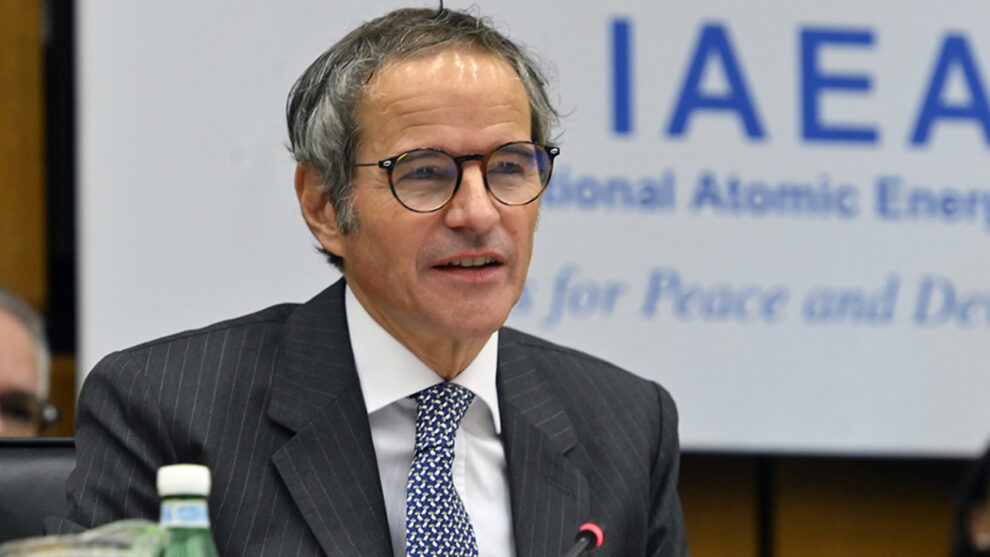International Atomic Energy Association (IAEA) Director General Rafael Mariano Grossi on Tuesday cited Morocco among the countries that could potentially become new nuclear powers.The list of countries includes Ghana, Kenya, Morocco, Nigeria, Namibia, the Philippines, Kazakhstan, and Uzbekistan.
In a report on Tuesday, Reuters quoted Grossi as saying that the IAEA expects the nuclear reactors in the world should double from the existing 400 units to reach the objectives of the Paris Climate Agreement.
“We already have 10 countries which have entered the decision phase (to build nuclear power plants) and 17 others which are in the evaluation process,” he said at the World Nuclear Exhibition in Paris.
In June 2022, reports indicated that Morocco was considering the construction of a nuclear reactor plant to give further momentum to the country’s green energy transition and guarantee energy sovereignty.
Morocco’s Minister of Energy Transition and Sustainable Development, Leila Benali, said at the time that the country would begin studying the feasibility of a nuclear reactor in 2015, adding that the country’s parliament would discuss the resulting report later that year.
The report presents a set of recommendations that would support Morocco’s launch of a nuclear energy plant, Benali added.
After investing in capital-intensive wind and solar energy-generating projects, Morocco plans on turning to nuclear energy to ensure its future energy security. “We now need a national stance to initiate producing electricity from nuclear energy,” Benali said.
Nuclear reactors are the most powerful source of energy, with the highest capacity factor – a measure of energy input – across the board.
While solar energy’s capacity factor is at 24.9%, nuclear energy’s capacity factor is set at 92.5%, dwarfing natural gas’ 56.6%.
However, nuclear plants pose a significant environmental risk if not managed properly. They produce radioactive waste, which can remain radioactive and lethal to human contact for over a millennium.
In 2014, Morocco created its Nuclear Safety Agency (ASSNuR) to regulate nuclear production and use for medical and industrial purposes.
In June 2022, AMSSNuR concluded a five-year training program with the IAEA to assist the Moroccan authority in developing a national regulatory framework, building human resource capacity, and structuring a nuclear risk management strategy.
Source: Moroccoworldnews















